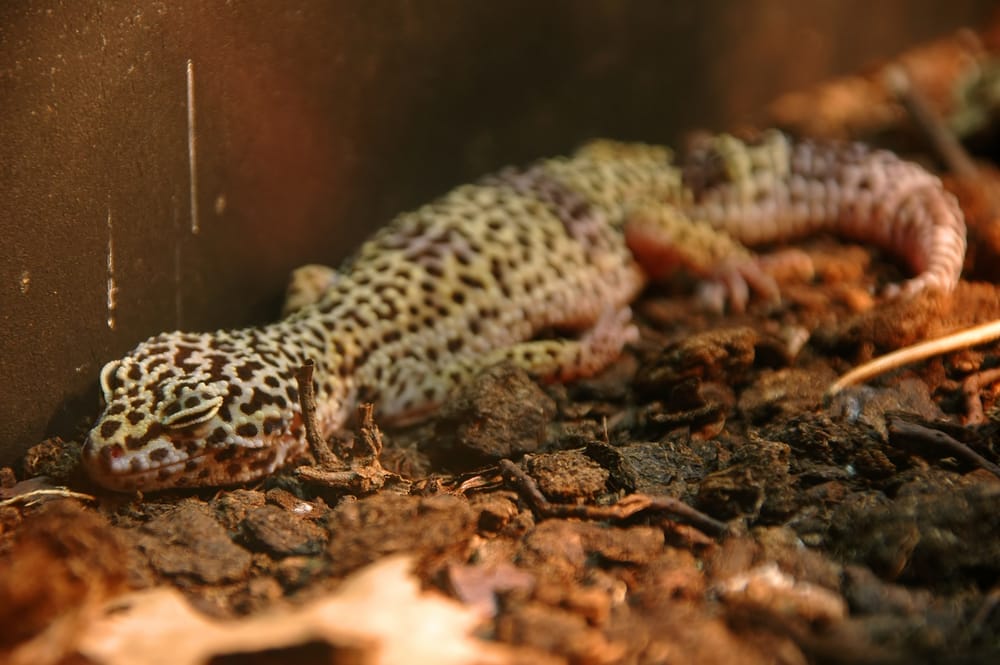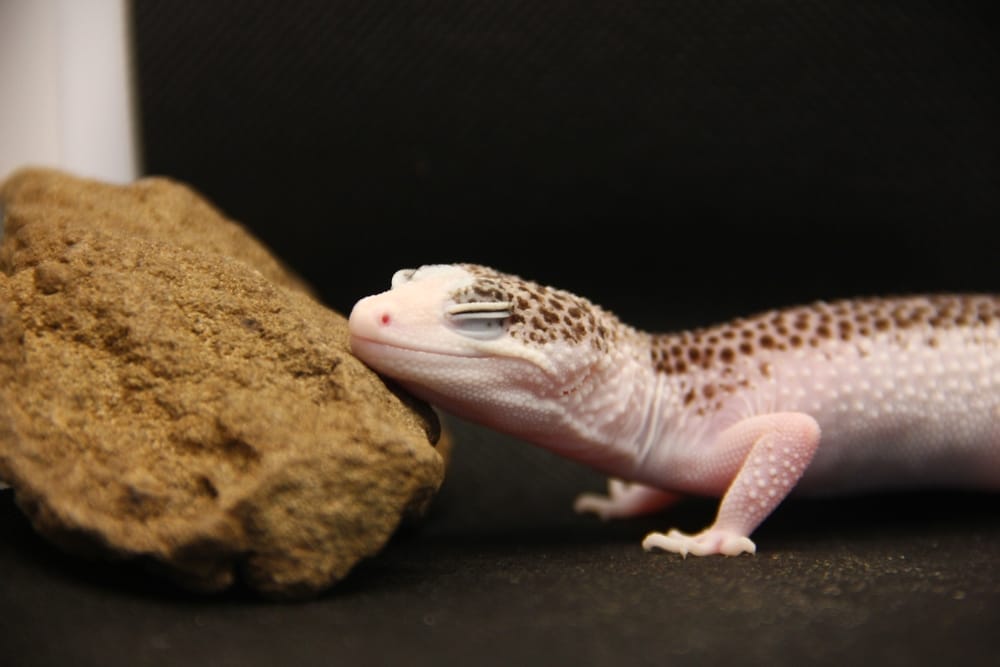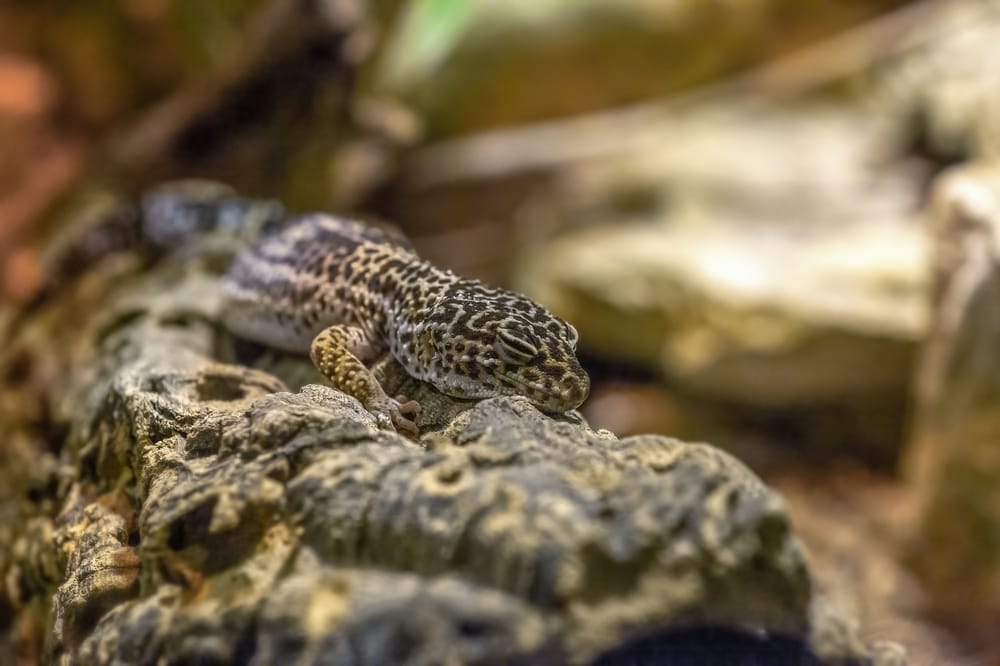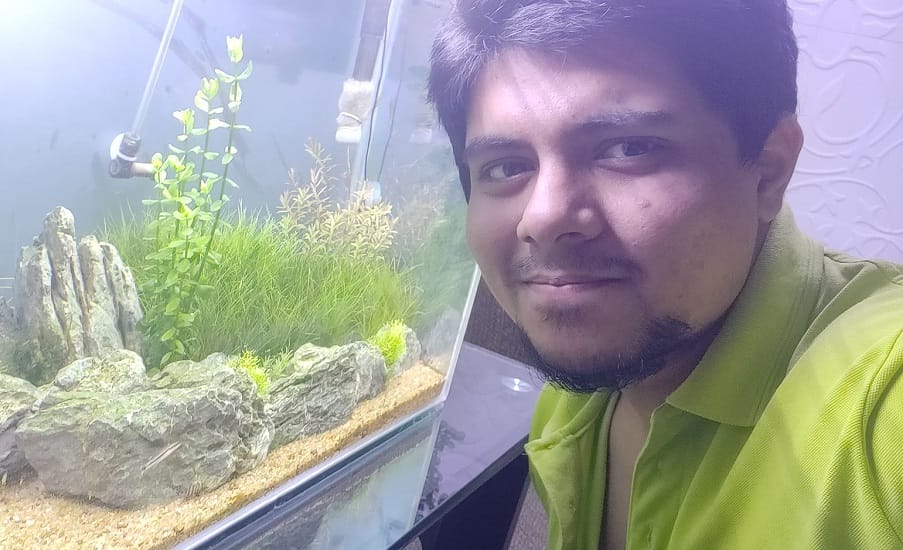This post was created with help from AI tools and carefully reviewed by a human (Muntaseer Rahman) . For more on how we use AI on this site, check out our Editorial Policy.
Check Out These FREE Tools We Made JUST For You!
Why Is My Leopard Gecko Sleeping So Much?

When I first saw my leopard gecko sleeping all day, I thought he was just lazy. Then I panicked—was he sick? Depressed? Secretly 90 years old?
Turns out, leopard geckos do sleep a lot. But not all sleep is normal sleep. So if your gecko is acting like a rock 24/7, not eating, and barely moving—you’re right to be concerned.
Let’s break down when it’s chill… and when it’s not.
Is It Normal for Leopard Geckos to Sleep a Lot?
Yes, it’s completely normal.
Leopard geckos are nocturnal, which means they’re awake at night and sleep during the day.
So if your gecko is passed out in its hide all afternoon, that’s just its version of Netflix and chill.
You might even think it’s lazy, but really, it’s following its natural rhythm.
They usually become active after sunset—exploring, hunting, or just creeping around like little night ninjas.
So as long as your gecko is active at night, eating well, and pooping like a champ, there’s nothing to worry about.

When Extra Sleep Might Be a Problem
Not all sleep is chill gecko sleep.
Sometimes, too much sleep means something’s off—especially if they’re acting weird even at night.
Here’s when you should start paying attention:
- They’re sleeping day and night, barely moving.
- They stop eating, even their favorite bugs.
- You don’t see them poop for days.
- They stay in one spot, even when you open the tank.
- They ignore you, food, and everything else.
If that sounds familiar, it’s not just a sleepy gecko—it’s a sign you need to check what’s going on.

Common Reasons Your Leopard Gecko Is Sleeping Too Much
Here are the most common reasons your leopard gecko might be sleeping more than usual—and what you can do about it:
1. Tank Temperature Is Off
Leopard geckos rely on heat to function.
If the tank is too cold, they’ll slow down and sleep more. Too hot? They’ll hide all day trying not to cook.
Warm side: 88–92°F
Cool side: 75–80°F
At night: Don’t let it drop below 70°F
Use a thermostat. Don’t guess.
2. Wrong Lighting Schedule
Geckos need 12 hours of light and 12 hours of darkness.
If you keep the lights on all night, they’ll think it’s daytime 24/7 and get confused. That messes with their body clock.
No bright lights at night. If you need to heat the tank, use a ceramic heat emitter or heat mat—no visible light.
3. Poor Diet
If your gecko isn’t getting the right nutrition, it’ll feel weak and sleep more.
Gut-load the bugs. Dust them with calcium and multivitamin powder. Make sure clean water is always available.
A gecko running on junk food isn’t going to have much energy.
4. Stress or Loud Environment
Geckos hate chaos.
If the tank is next to a noisy TV, under a blasting fan, or in a room full of stomping kids, your gecko won’t rest properly.
Too much stress = more hiding = more sleep.
5. Illness or Parasites
This is the big one.
Illness can make your gecko slow, tired, and disinterested in food. Parasites are sneaky—they can drain your gecko without you even noticing until it’s too obvious.
If your gecko looks thin, weak, or “off,” don’t guess—go to a reptile vet.
6. Brumation (Winter Slowdown)
Sometimes geckos just slow down during the colder months. It’s called brumation. They eat less, move less, and sleep more.
This is normal if:
- Your gecko is an adult
- It’s happening in winter
- The tank is a bit cooler than usual
- No major health signs are showing
If it’s a baby or you’re unsure, it’s safer to check with a vet anyway.

What If My Leopard Gecko Sleeps at Night Too?
If your leopard gecko is sleeping at night too, something’s not right.
They’re supposed to be most active after dark. That’s when they hunt, explore, and poop in the most inconvenient corner of the tank.
So if yours is snoozing through the night, here’s what might be going on:
- Tank too cold at night? They’ll stay still to conserve energy.
- Lights on all night? That messes with their instincts. They think it’s daytime.
- Sick or stressed? They’ll sleep more and move less.
One sleepy night isn’t a big deal. But if your gecko’s becoming a full-time sleeper, it’s time to check the setup.

What If It Sleeps Outside the Hide?
If your leopard gecko is sleeping outside the hide, it’s not always a red flag—but it’s worth checking a few things.
Normally, geckos like to sleep inside hides because they feel safe and the temperature is just right.
So if yours is ditching the hide, here’s what might be going wrong:
- The hide is too cold
- The warm side is too hot
- Humidity inside the hide is off
- The hide feels exposed or uncomfortable
Sometimes geckos just pick a weird nap spot. But if it’s happening often, check your temps and humidity.
Also make sure you’ve got three hides: one on the warm side, one on the cool side, and one humid hide for shedding.
More options = happier, better-sleeping gecko.
About Author
Hello, I’m Muntaseer Rahman, the owner of AcuarioPets.com. I’m passionate about aquarium pets like shrimps, snails, crabs, and crayfish. I’ve created this website to share my expertise and help you provide better care for these amazing pets.
Disclaimer
This site is owned and operated by Muntaseer Rahman. AcuarioPets.com is a participant in the Amazon Services LLC Associates Program, an affiliate advertising program designed to provide a means for sites to earn advertising fees by advertising and linking to Amazon.com. This site also participates in other affiliate programs and is compensated for referring traffic and business to these companies.

